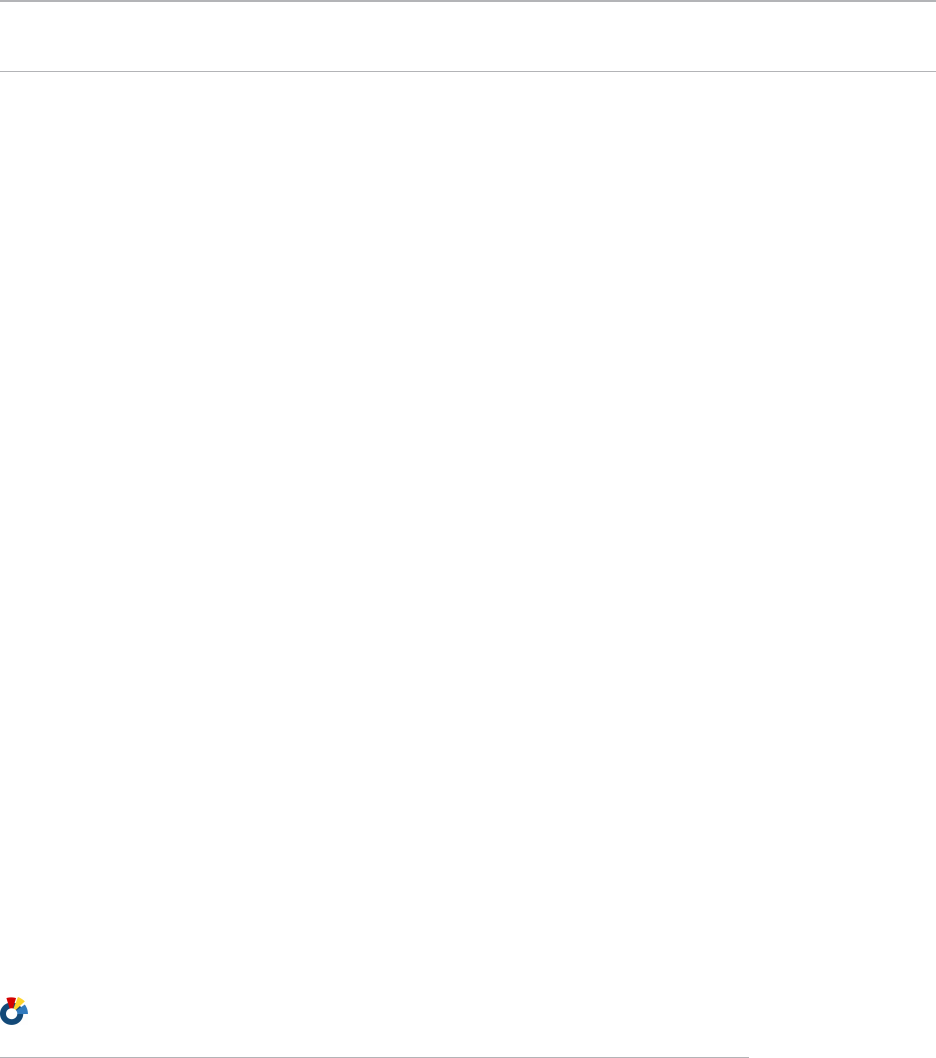
Seton Hall University Seton Hall University
eRepository @ Seton Hall eRepository @ Seton Hall
Student Works Seton Hall Law
2023
An Analysis of European Competition Law as Applied to UEFA An Analysis of European Competition Law as Applied to UEFA
John Martin
Follow this and additional works at: https://scholarship.shu.edu/student_scholarship
Part of the Law Commons

1
John Martin
EU Business Law AWR
Introduction
On December 18, 2022, the world watched in awe as Argentina faced off against France
in the World Cup Final. Lionel Messi, who many believe is the greatest player of all time,
scored two goals and led Argentina to a 4-2 victory on penalty kicks after the game ended in a 3-
3 tie due to a late goal by France.
1
The game reminded the world why soccer truly is as Pele
described it, the “beautiful game.”
2
However, there is more to the game than meets the eye as
there can be no beauty without a profit. Beneath the beauty that is organized soccer lies a
multibillion-dollar financial empire. In 2020-2021 the five major European leagues
3
generated
€15.6 billion in aggregate revenue, which was up 3% from the prior season.
4
Prior to the
COVID-19 pandemic the revenue was even higher at €17.0 billion in 2018-2019.
5
As is customary with most businesses, there is a governance hierarchy in soccer. At the
top is the Federation Internationale de Football Associate, commonly known as FIFA.
6
FIFA is
the main governing body for international soccer and oversees 211 national associations divided
into six confederations based on geography.
7
Below FIFA are the six confederations, one of
1
Connor O’Halloran, Argentina beat France on penalties to win thrilling World Cup final, ESPN (Dec. 18, 2022),
https://www.espn.com/soccer/report?gameId=633850.
2
Barney Corkhill, Jogo Bonito: “The Beautiful Game”, Bleacher Report (Oct. 16, 2008),
https://bleacherreport.com/articles/69649-jogo-bonito-the-beautiful-game.
3
See Jesse Kalashyan, The game behind the game: UEFA's Financial Fair Play Regulations and the need to field a
substitute, 18 Eur. Competition J. 21, 22-23 (2021) The five major European Leagues, known as the “Big Five
Leagues,” are the Premier League (England), Serie A (Italy), La Liga (Spain), the Bundesliga (Germany), and Ligue
1 (France).
4
Deloitte, Annual Review of Football Finance (2022) https://www2.deloitte.com/uk/en/pages/sports-business-
group/articles/annual-review-of-football-finance.html.
5
Id.
6
See Kalashyan supra note 3 at 21-22.
7
See FIFA, Member Associations (2022) https://www.fifa.com/about-fifa/associations. The six confederations are as
follows: 1. Confederation Africaine de Football (CAF); 2. Asian Football Confederation (AFC); 3. Union des
Associations Europeennes de Football (UEFA); 4. The Confederation of North, Central America and Caribbean
Association (CONCACAF); 5. Confederacion Sudamericana de Futbol (CONMEBOL); 6. Oceana Football
Confederation. UEFA will be the only confederation covered here.

2
which is UEFA, the governing body of European Soccer, comprised of fifty-five national
associations, each overseeing competition at the national level through the operation of national
leagues.
8
While each of the national associations oversee leagues and club competition within
their borders, UEFA oversees club competition at the European level, most notably with the
Champions League
9
, one of the most prestigious club competitions in the world.
To participate in UEFA sanctioned competitions such as the champions league, a club
must first be licensed by UEFA, which requires clubs to abide by UEFA regulations and give
UEFA a lot of influence over the club.
10
While it is not required for clubs to become licensed, it
is necessary if that club would like a chance to compete in UEFA sanctioned tournaments. The
risk of being excluded from said tournaments is notable due to the financial benefits available to
competitors.
11
In 2022, Real Madrid was awarded a prize $22.69 million for winning the
tournament, while runner-up Liverpool was awarded $17.59 million.
12
Clubs were also awarded
a minimum of $17.74 million for just being one of the 32 clubs that qualified for the group stage,
an additional $3.17 million was awarded per group stage win and $1.05 million per draw.
13
Real
Madrid finished the tournament with a grand total of roughly $94.42 million in prize money.
14
These are significant sums of money that would be of great use to any club, especially one that is
not already a powerhouse. This setup allows UEFA to exert control over the clubs and to
8
See UEFA, About UEFA (2021) https://www.uefa.com/insideuefa/about-uefa/.
9
The UEFA Champions League is UEFA’s yearly club competition where the top soccer clubs in Europe compete
to be named European Champions. See Premier League, Champions League Explained (2023),
https://www.premierleague.com/uefa-champions-league-explained.
10
Kalashyan, supra note 3, at 23.
11
Id.
12
Sean Markus Clifford, Champions League prize money breakdown 2022: How much to the winners get?, The
Sporting News (May 28, 2022), https://www.sportingnews.com/us/soccer/news/champions-league-prize-money-
breakdown-2022-how-much-winners/alyjzqvtjjhxk311oivierzn.
13
Id.
14
Id. The total includes the $17.74 million for qualifying for the group stage, $15.85 for five group stage wins,
$10.89 million for making the Round of 16, $12.02 million for a being a quarterfinalist, and $14.18 million for being
a semifinalist.

3
effectively govern European soccer by making it fiscally irresponsible for a club to not be
licensed to compete for the prizes. Once the sport goes beyond just being a game, as is the case
with UEFA, the necessity for government intervention grows and there becomes a need for
regulation. This paper will proceed as follows. Section I will provide a history of EU law’s
application to sport. Section II will discuss EU Competition Law and how it is applied to UEFA
and provide an antitrust analysis on UEFA’s Financial Fair Play Regulations. Section III will be
a comparative look at the application of United States antitrust law to sports. Section IV will be
an analysis of the failed attempt to establish a European Super League and the antitrust claims
currently before the Court.
I. A History of EU Law Applying to Sport
The role that sports, especially soccer, play in European society and culture cannot be
understated. To many, soccer is not just a game, it is a way of life. The passion of the fans is
one of the many reasons why soccer thrives as a multibillion-dollar business. It is the same
reason why the European Union needed to step in, to both promote the sport and at the same time
regulate it under the law. This is expressed in Article 165 of the Treaty of Lisbon, which states
that the Union “shall contribute to the promotion of European sporting issues, while taking
account of the specific nature of sport, its structures based on voluntary activity and its social and
educational function.”
15
This provision seems to state a more deferential approach by the Union
toward issues deemed to involve issues that are specific to the sport.
15
Treaty of Lisbon Amending the Treaty on European Union and the Treaty Establishing the European Community,
Dec. 13, 2007, art. 165, 2007 O.J. (C 306) 1.

4
Prior to 2006, the European Court of Justice (ECJ)
16
seemed to be more deferential
regarding issues involving sports. The Court had an opportunity to hear a case involving sports
in 1974 when two Dutch cyclists challenged an organizational requirement that pacemakers and
stayers in bicycle races be the same nationality.
17
There, the court held that rules for member
states don’t apply to organizations that sanctioned and regulated a certain sport because the rules
were made for EU economic activity.
18
Sporting organization rules are of purely sporting
interest and not subject to Community law even if they restrained the economic freedom of
athletes.
19
Here. the Court drew a line in the sand between sports issues and economic issues,
even when that line seems to blur when it comes to the athletes and their economic freedom.
The Walrave decision was challenged in 1995 after soccer player Jean-Marc Bosman’s
contract with RFC Liege
20
expired and his planned move to Dunkerque, a French soccer club,
fell through due to their refusal to pay RFC Liege’s transfer fee demand.
21
As a result, Bosman
was forced to stay with RFC Liege due to them not granting his release, and his pay was reduced
by 70%.
22
There, the ECJ held that the current system placed a restriction on the free movement
of workers.
23
Further, it gave players the right to a free transfer at contract expiration as long as
the transfer was between clubs with a European Union association.
24
This holding seemed to
signal a shift in the court’s view on what constituted a purely sports issue and a willingness to
16
See Consolidated Version of the Treaty on European Union art. 19, 2012 O.J. C 326/13 at 27. The European
Court of Justice is now called the Court of Justice of the European Union, which is split into the Court of Justice and
the General Court.
17
Case 36/74 Walrave and Koch v Union Cycliste Internationale (1974) E.C.R. 1405.
18
Id. at 4.
19
Id. at 8.
20
RFC Liege is a soccer club in the Belgian First Division
21
Case C-415/93 Union royale belge des sociétés de football association ASBL, Royal club liégeois SA, and Union
des associations européennes de football (UEFA) v Jean-Marc Bosman [1995] E.C.R. I-4921.
22
See Id.
23
Id. ¶ 104.
24
Id. at 1.

5
enforce Union law on sports, at least when it came to the free movement of workers. The right
of free transfer granted to players by the court in Bosman is still used today. Players are still able
to freely move between clubs so long as their contract is expired. This system bears a striking
resemblance to the free agency system currently used in American sports and preserves the right
of free movement of labor.
In 2006, there was a major shift in the application, or seemingly lack thereof, of EU law
to sports. David Meca-Medina and Igor Majcen were distance swimmers, from Spain and
Slovenia respectively, who were each suspended for doping violations.
25
Meca-Medina and
Majcen challenged the IOC drug policy as a violation of the European Community competition
law.
26
The Court of First Instance
27
held that doping constituted a sporting issue rather than an
economic one and was thus not within the scope of the EC Treaty and not subject to competition
laws.
28
On appeal, the Court of Justice held the doping requirement was not a purely sporting
rule issue and was thus subject to EC law.
29
This showed a willingness of the Court to apply
competition law to sports and sporting organizations deemed to be engaging in economic
activity.
30
While the Meca-Medina and Majcen judgment was a victory for those wishing to
regulate sports and their organizations, there was a bit of dissent. UEFA was unhappy with the
25
Case C-519/04 P David Meca-Medina and Igor Majcen v. Commission of the European Communities (2006)
E.C.R. I-06991. Both swimmers tested positive for Nandrolone, an anabolic steroid prohibited by the International
Olympic Committee (IOC) and implemented by the International Swimming Federation (FINA) and were suspended
for four years, which was eventually reduced to two.
26
Id. ¶ 16.
27
See Court of Justice of the European Union, General Court, Presentation, (2023),
https://curia.europa.eu/jcms/jcms/Jo2_7033/en/#compet. The Court of First Instance is now called the General
Court and has jurisdiction over actions brought by natural or legal persons against acts of the institutions, bodies,
offices or agencies of the European Union (which are addressed to them or are of direct and individual concern to
them) and against regulatory acts, or against a failure to act on the part of those institutions, bodies, offices or
agencies.
28
Meca-Medina, [2006] E.C.R. I-06991, ¶ 7.
29
Id. ¶ 28-30.
30
Kalashyan, supra note 3 at 32.

6
decision and that was expressed in an article by Gianni Infantno, the current FIFA President,
when he was Director of Legal Affairs for UEFA.
31
In his response, Infantino argued that this
decision would constitute a slippery slope and “fuel competition law claims” against sporting
organizations.
32
Further, this judgment would bring about more complaints arguing that the
effect of sporting rules and practices “have ‘disproportionate’ effects or are ‘not limited to what
is necessary for the proper conduct of competitive sport’ and… ‘prove’ a violation of
competition law.”
33
Infantino’s argument takes an extreme approach, likely because it would
potentially open up his organization to more competition law claims, and as a result more
government regulation. As of yet, Infantino’s fears do not seem to have come to fruition.
II. EU Competition Law and Application to UEFA
A. General Overview of Competition Law
Meca-Medina and Majcen opened the door for EU competition law to be applied to
sports. Before discussing the application of the law, it is first necessary to discuss modern
competition law, mainly TFEU Articles 101 and 102. Article 101 states:
1. The following shall be prohibited as incompatible with the internal market: all
agreements between undertakings, decisions by associations of undertakings and
concerted practices which may affect trade between Member States and which have
as their object or effect the prevention, restriction or distortion of competition
within the internal market, and in particular those which:
(a) directly or indirectly fix purchase or selling prices or any other trading
conditions;
(b) limit or control production, markets, technical development, or investment;
(c) share markets or sources of supply;
(d) apply dissimilar conditions to equivalent transactions with other trading parties,
thereby placing them at a competitive disadvantage;
(e) make the conclusion of contracts subject to acceptance by the other parties of
supplementary obligations which, by their nature or according to commercial usage,
have no connection with the subject of such contracts.
31
Gianni Infantino, Meca-Medina: a step backwards for the European Sports Model and the Specificity of Sport?,
UEFA (Feb. 10, 2006), https://www.uefa.com/multimediafiles/download/uefa/keytopics/480391_download.pdf.
32
Id. at 8.
33
Id. at 9.

7
2. Any agreements or decisions prohibited pursuant to this Article shall be
automatically void.
34
Specifically, this focuses on acts such as price fixing, limiting or controlling production and the
markets, agreements to share the markets and supply sources, and placing other parties at a
competitive disadvantage.
35
However, the previously stated provisions can be inapplicable in the
case of agreements between undertakings [and] any decision or category of decisions by
associations of undertakings “which contributes to improving the production or distribution of
goods or to promoting technical or economic progress, while allowing consumers a fair share of
the resulting benefit[.]
36
These agreements cannot impose unnecessary restrictions on the
undertakings nor allow the undertakings to eliminate competition in the market.
37
This provision
seems to be a catchall to allow for anti-competitive agreements when the decision is made by
undertakings coming together in agreement, so long as the consumer is benefitted and
competition is not eliminated.
Article 102 prohibits abuses of a dominant position as it may affect trade between
member states and applies those undertakings that hold a dominant position in a market and
abuse that position to influence the market and weaken competition.
38
Article 102 lists examples
of abuse of dominant position to include “directly or indirectly imposing unfair purchase or
selling prices or other unfair trading conditions, limiting production, markets or technical
development to the prejudice of consumers, [and] applying dissimilar conditions to equivalent
transactions with other trading parties, thereby placing them at a competitive disadvantage[.]
39
34
Consolidated Version of the Treaty on the Functioning of the European Union art. 101, 2012 O.J. C326/47, at 88-
89.
35
Id.
36
Id.
37
Id.
38
Consolidated Version of the Treaty on the Functioning of the European Union art. 102, 2012 O.J. C326/47, at 89.
39
Id.

8
While the examples listed are not all-encompassing, they are broad and can seemingly apply to
multiple situations. The previously mentioned articles provide the basis for analyzing antitrust
claims against sporting organizations such as UEFA. The duty of enforcing said laws is split
amongst the Commission,
40
the Member States, the European Competition Network,
41
the Court
of Justice of the European Union (CJEU), and the national courts.
42
B. Background on UEFA’s Financial Fair Play Regulations
A major oversight of the Commission was failing to apply competition law to UEFA and
their Financial Fair Play Regulations (FFP) that were introduced in 2010 to combat “excessive
spending by wealthy club owners that was deemed to be creating an unfair playing field.”
43
Basically, UEFA claims that FFP is about improving the overall financial health of club soccer in
Europe.
44
The regulations not only allow UEFA to regulate the finances of clubs already in
possession of a UEFA license, but they also allow UEFA to regulate finances of clubs not yet in
possession of a UEFA license, but are seeking membership.
45
They were enacted based on the
principle that clubs compete on the basis of their own financial resources and that it will improve
financial fairness, and long-term stability and sustainability for the clubs.
46
One of the most notable requirements of FFP is what is known as the “break-even”
requirement, which is basically a requirement for clubs to keep their books balanced and not
40
The Commission is the executive body of the European Union.
41
See European Commission, Competition Policy, European Competition Network (ECN), (2023)
https://competition-policy.ec.europa.eu/european-competition-network_en. (The European Competition Network
was established to build an effective legal framework to enforce EC competition law against companies that engage
in cross-border business practices that restrict competition and are harmful to consumers).
42
Anne-Lise Sibony, Lecture at UCLouvaine-La-Neuve, “Competition Law” (Mar. 8, 2023).
43
Matt Slater and Luke Bosher, UEFA approves new financial regulations to replace FFP —new ‘squad cost rule’
of 70 percent of revenue, The Athletic (Apr. 7, 2022, at 10:03 AM) https://theathletic.com/news/uefa-approves-new-
financial-regulations-to-replace-ffp-new-squad-cost-rule-of-70-per-cent-of-revenue/nStOjscm115G.
44
Financial fair play: all you need to know, UEFA (Jun. 30, 2015) https://www.uefa.com/news/0253-
0d7f34cc6783-5ebf120a4764-1000--financial-fair-play-all-you-need-to-know.
45
Id.
46
Id.

9
spend more money than they take in.
47
To monitor this requirement, UEFA has the independent
Club Financial Control Body (CFCB) to analyze three years’ worth of club finances each season
to ensure compliance and hand out any necessary sanctions.
48
It is up to the CFCB to decide on
measures and sanctions for non-compliance.
49
However, this does not mean that licensed clubs
cannot have losses. Clubs can spend up to €5 million more than earned per three-year period and
can potentially exceed that amount to a certain limit if covered in its entirety by a “direct
contribution/payment from the club owner(s) or a related party”
50
In 2022, as a result of the financial losses caused by the COVID-19 pandemic, UEFA
increased the losses clubs were allowed to report over three years from €30 million to €60
million and that amount can even go up to €90 million for clubs deemed to be in “good financial
health.”
51
However, included with the increase in allowable losses, UEFA imposed a
requirement that clubs not spend more than 70% of total revenues on player and staff wages,
transfers and agent fees by the 2025/26 season.
52
A club owner’s personal wealth is not included
in the calculation of club income.
53
As such, a club owner would be unable to invest their
personal wealth to improve the club, as the club would need to operate using its own reported
revenues.
54
This prevents both club owners and outside investors from circumnavigating
47
Id.
48
Id.
49
Id. Disciplinary measures imposed for non-compliance vary based on multiple factors and can include: “warning;
reprimand; fine; deduction of points; withholding of revenues from a UEFA competition; prohibition on registering
new players in UEFA competitions ; restriction on the number of players that a club may register for participation in
UEFA competitions, including a financial limit on the overall aggregate cost of the employee benefits expenses of
players registered on the A-list for the purposes of UEFA club competitions; disqualification from competitions in
progress and/or exclusion from future competitions; withdrawal of a title or award.”
50
Id.
51
UEFA adopts new regulations to replace financial fair play, France 24 (Apr. 7, 2022, at 16:34)
https://www.france24.com/en/live-news/20220407-uefa-adopts-new-regulations-to-replace-financial-fair-play-1.
52
Id. The ceiling will gradually drop as current contracts expire, starting with 90% in 2023/24, 80% in 2024/25 and
then finally 70% in 2025/26.
53
UEFA, UEFA Club Licensing and Financial Fair Play Regulations (2018)
https://www.jalgpall.ee/docs/Edition%202018%20UEFA%20CLFFP%20Regulations.pdf.
54
Id.

10
compliance with the FFP requirements and putting additional, unreported, revenue into their
clubs. It also seems to act as sort of a buffer to prevent larger clubs from investing extra money
into their club to increase their advantage over the smaller clubs.
C. Financial Fair Play analysis under Article 101 TFEU
A four-step analysis can be used to help determine whether FFP violates Article 101
TFEU by breaking down Article 101 into parts.
55
First, Article 101 only applies to agreements
between undertakings, decisions by associations on undertakings, and concerted practice among
undertakings.
56
Second, the decision must affect trade between member states.
57
Third, is what
is known as the de minimus doctrine, which was established by the ECJ,
58
and basically states
that anticompetitive agreements and decisions are not prohibited if they are of “minor
importance.”
59
Importance is determined by market share and turnover and would not be
considered de minimus if the parties involved have 10% or more of the relevant market.
60
Fourth, the decision “must have as its object or effect the prevention, restriction, or distortion of
competition.”
61
For the first step of the analysis, it is first necessary to determine whether UEFA is an
undertaking. The ECJ interpreted undertaking to include “every entity engaged in an economic
activity, regardless of the legal status of the entity and the way in which it is financed.”
62
As
stated earlier, UEFA is the governing body of European soccer.
63
Further, we can go a bit deeper
55
Johan Lindholm, The Problem with Salary Caps Under European Union Law: The Case Against Financial Fair
Play, 12 Tex. Rev. Ent. & Sports L. 189, 198 (2011)
56
Id.
57
Id. at 199.
58
De minimus doctrine established in Case 5/69, Volk v. Vervaecke, (1969) ECR 295.
59
Lindholm, supra note 55, at 199 citing Case 5/69, Volk v. Vervaecke, (1969) ECR 295.
60
Id.at 199 citing Commission Notice 2001/C 368/07, 2001 O.J. C 368/13.
61
Id. at 200.
62
Case C-41/90, Hofner & Elser v Macroton GmbH (1991) ECR 1-1979
63
UEFA, supra note 8.

11
into it and see UEFA as a group of undertakings, as UEFA oversees the 55 separate national
associations that all run their own leagues.
64
Using that logic, it can be determined that FFP is a
decision made by a group of undertakings.
As for the second step in the analysis, it would need to affect trade between Member
States. This analysis is relatively simple as the effect on trade is obvious. FFP limits the ability
of clubs to spend and be involved in the transfer market. FFP allows UEFA to monitor and
regulate club finances and ensure that clubs are not spending more than they bring in.
65
Those
clubs that do not have high enough revenue streams do not have the same opportunity as more
prosperous clubs to spend money to put a better product on the field. That lowers the incentive
for fans to spend money to travel to games or spend money on team products unless they support
a high revenue club.
The third step of analysis would not apply here because UEFA controls 100% of the
professional soccer market in the EU and thus there is no market share.
66
Finally, step four FFP
absolutely restricts competition because it makes it almost impossible for smaller market clubs to
compete with larger markets for star players. Lower revenues lead to lower amounts available to
spend, thus restricting their ability to compete. Those clubs also cannot benefit from having a
rich owner or other potential benefactors because those amounts would not be included in the
revenue calculation, so there is no way around the restrictions.
67
While it can be argued that
larger market clubs are also hit hard by the restrictions because they spend more and had to
correct their large debts, that point is irrelevant because they would still have more money to
spend than a smaller club.
64
Id.
65
UEFA, supra note 53.
66
There is currently no viable alternative to UEFA with regard to European soccer.
67
See Id.

12
It could be argued that the restrictions of Article 101 TFEU are inapplicable in this
instance as this could be seen as an agreement between undertakings “which contributes to
improving the production or distribution of goods or to promoting technical or economic
progress, while allowing consumers a fair share of the resulting benefit.
68
UEFA’s stated
objectives are "to deal with all questions relating to European football…to safeguard the values
of European football, promote and protect ethical standards and good governance in European
football… and support and safeguard its member associations for the overall well-being of the
European game.”
69
On the exterior, FFP seems to fall under UEFA’s stated objective of
supporting the member associations for the overall well-being of the game by ensuring that clubs
are not spending more than they make. It also seems to promote economic progress as the
regulations were enacted to promote a level economic playing field among the clubs.
70
However, this regulation should still fail the antitrust analysis under Article 101 TFEU as it
imposes unnecessary restrictions on the clubs by subjecting them to UEFA’s monitoring and
control of their finances or risk losing their membership status.
D. Financial Fair Play analysis under Article 102 TFEU
As for Article 102 TFEU, to determine whether there is a violation, one would first need
to determine whether the undertaking has a dominant position in the market and then whether
that dominant position is abused. The Commission defines dominance under Community Law as
“a position of economic strength enjoyed by an undertaking[] which enables it to prevent
effective competition being maintained on a relevant market[] by affording it the power to
behave to an appreciable extent independently of its competitors, its customers and ultimately of
68
TFEU, supra note 24, art. 101, 2012 O.J. C 326/47, at 87-88.
69
UEFA, supra note 8.
70
UEFA, supra note 53.

13
consumers.”
71
Further, the Commission has stated “that the higher the market share and the
longer the period of time over which it is held, the more likely it is that it constitutes … a
dominant position.”
72
First, when it comes to European soccer, UEFA is the market and there are no real
alternatives. UEFA has complete market dominance. As discussed earlier, it makes little
financial sense for European clubs to not have a license from UEFA because they miss out on
any potential prizes in any of UEFA’s tournaments. UEFA thus controls the market and abuses
that dominant position with the implementation of FFP. Through the FFP regulations, they are
not only limiting clubs in their spending, but they are also effectively, yet unofficially,
implementing a salary cap under the guise of promoting an equal playing field. While there is no
official salary cap like in the National Football League (NFL) or National Basketball Association
(NBA) in the United States, putting a limit on what clubs can spend would as a result lower
player salaries because teams would need to have funds available to build a team. That in itself
is likely an abuse of dominant position as it limits the market for players and as a result, likely
constitutes a violation of Article 102 TFEU.
E. The Striani Case and UEFA’s court victory
While the previous analysis suggests that FFP violates EU competition law, actual
challenges have been less successful. In May 2013, Daniel Striani lodged a complaint with the
European Commission, requesting that the Commission investigate UEFA and the FFP
regulations.
73
The complaint alleged, among other things, that FFP’s break-even requirement
71
Communication from the Commission C45/02 of Feb. 24, 2009, Guidance on the Commission's Enforcement
Priorities in Applying Article 82 of the EC Treaty to Abusive Exclusionary Conduct by Dominant Undertakings,
2009 O.J., ¶ 10 http://eur-lex.europa.eu/legal-content/EN/TXT/PDF/?uri=CELEX:52009XC0224(01)&from=EN.
72
Id. at ¶ 15.
73
Commission Decision of 24 October 2014 (AT.40105 - UEFA Financial Fair Play Rules), at ¶ 2.

14
violated Articles 101 and 102 TFEU.
74
Striani also filed suit in the Court of First Instance in
Brussels, making the same claims.
75
The Commission rejected Striani’s complaint.
76
In their
response, the Commission noted that they are “unable to pursue every alleged infringement of
EU competition law which is brought to its attention” due to limited resources.
77
Further, the
Commission claimed that the Brussels Court was better suited to deal with the matters raised in
the complaint.
78
Rather than taking an opportunity to enforce EU competition law in sporting
issues, the Commission instead decided to encourage complainants to use the national courts
instead.
79
The Belgian Court referred Striani’s case to the Court of Justice, requesting a preliminary
ruling.
80
The Belgian Court referred three questions to the Court of Justice, one of which
involved the competition law claim:
Must Article 101 TFEU (or Article 102 TFEU) be interpreted as meaning that the UEFA
rule known as the ‘break-even requirement’ or ‘break-even rule’ infringes that provision
of EC law in so far as the UEFA rule gives rise to a restriction of competition (or the
abuse of a dominant position), in particular a restriction ‘by its object’ in that it limits the
right to invest, which is either ‘by its object’ anticompetitive or is not necessary for the
achievement of the objectives pursued by UEFA, namely the long-term financial stability
of football clubs and the sporting integrity of UEFA’s competitions — or, in the
alternative, which is not proportionate to the achievement of those objectives?
81
74
Id. ¶ 3.
75
Id. ¶ 6.
76
Id. ¶ 1.
77
Id. ¶ 29.
78
Id. ¶ 1.
79
Ben Van Rompuy, The Role of EU Competition Law in Tackling Abuse of Regulatory Power by Sports
Associations, 22 Maastricht J. EUR. & COMP. L. 179 (2015).
80
Case C-299/15, Daniel Striani and Others v. Union europeenne des Societes de Football Association (UEFA) and
Union Royale Belge des Societes de Football – Association (URBSFA),
https://curia.europa.eu/juris/liste.jsf?nat=or&mat=or&pcs=Oor&jur=C%2CT%2CF&num=C-
299%252F15&for=&jge=&dates=&language=en&pro=&cit=none%252CC%252CCJ%252CR%252C2008E%252C
%252C%252C%252C%252C%252C%252C%252C%252C%252Ctrue%252Cfalse%252Cfalse&oqp=&td=%3BAL
L&avg=&lgrec=en&lg=&page=1&cid=1731761.
81
See Id.

15
Unfortunately, the Court dismissed the request for preliminary ruling on May 29, 2015, holding
that it was “manifestly inadmissible.
82
In a statement, UEFA stated that they were pleased with
the outcome of this case.
83
UEFA further noted that the Court of Justice “declared that request as
pointless because the court making it [the BCFI] had already declared itself incompetent to rule
on the merits of the so-called Striani case” and that the national court failed to provide any of the
“necessary information” to allow the Court of Justice to address the competition law complaint.
84
While this may have been a victory with UEFA with regard to Financial Fair Play, it seems that a
true competition law analysis was never completed.
III. Comparison to the United States application of Anti-Trust to sports
The basis for antitrust law in the United States are the Sherman Antitrust Act of 1890
85
and the Clayton Act of 1914.
86
Section 1 of the Sherman Antitrust Act prohibits “every contract,
combination in the form of trust or otherwise, or conspiracy, in restraint of trade or commerce
among the several States, or with foreign nations[.]”
87
Section 2 prohibits monopolization of
“any part of the trade or commerce among the several States, or with foreign nations[.]”
88
The
relevant sections of the Clayton Act are sections 4 and 6. Section 4 permits anyone damaged “in
their business or property” to sue for damages and attorney’s fees
89
and Section 6 deals with
labor,
90
which is important when discussing sports.
82
See Id.
83
ESPN Staff, UEFA claims victory in financial fair play supreme court challenge, ESPN (Jul. 22, 2015)
https://www.espn.com/soccer/uefa-champions-league/story/2531592/uefa-claims-victory-in-financial-fair-play-
court-challenge.
84
Id.
85
15 U.S.C. §§ 1 – 7.
86
15 U.S.C. §§ 12 – 27.
87
15 U.S.C. § 1.
88
15 U.S.C. § 2.
89
15 U.S.C. § 15.
90
15 U.S.C. § 17.

16
While the antitrust laws in the United States cover a vast number of things, there is one
major exemption with regard to sports, baseball. Baseball has an articulated antitrust exemption
from the Supreme Court because it was determined that baseball was not part of interstate
commerce.
91
This exemption was later begrudgingly confirmed by the court, with the burden of
removing the exemption being placed on Congress.
92
In 1998, Congress did legislate away a bit
of baseball’s antitrust exemption with the Curt Flood Act of 1998, which removed labor issues
from the exemption.
93
When conducting an antitrust analysis on sporting issues in the United States, there are
four questions that must be asked. The first is whether it deals with baseball, because of its
antitrust exemption.
94
If the answer is yes, the activity is exempt, except for labor issues. If the
answer is no, then it must be inquired whether the activity involves broadcasting. If the answer
is yes, then it is covered under the Sports Broadcasting Act of 1961, which provides an antitrust
exemption for broadcasting.
95
If no, the next step is determining whether the activity is related to
wages, hours, and conditions of employment (labor). If yes, it is covered under the Collective
Bargaining Agreement (CBA) and the remedy is as specified in the CBA. If not but it is
something that the union bargained for or might bargain for but left out of the CBA, it is covered
under the non-statutory labor exemption, but only if the players union and management agree.
96
If the answer is still no, then a rule of reason analysis must be completed.
97
To complete a rule
of reason analysis it must first be asked if the activity involves a significant anticompetitive
effect, if so, then it must be justified by a legitimate business purpose and be as narrow as
91
See Federal Baseball Club, Inc. v. National League of Professional Baseball Clubs, 259 U.S. 200 (1922).
92
See Flood v. Kuhn, 407 U.S. 258 (1972).
93
15 U.S.C. § 26b.
94
See Federal Baseball Club, Inc., 259 U.S. 200.
95
15 U.S.C. §§ 1291 – 1295.
96
See Brown v. Pro Football, Inc., 518 U.S. 231 (1996).
97
See NCAA v. Board of Regents of the Univ. of Oklahoma and Univ. of Georgia Athletic Ass’n, 468 U.S. 85 (1984).

17
possible.
98
Most issues involving the National Collegiate Athletic Association (NCAA) and
college sports are subject to a rule of reason analysis because the players are not considered
employees.
99
Overall, the analysis done for an antitrust analysis on sporting issues in the United States
is similar to that conducted with the EU, with two major differences. Baseball’s antitrust
exemption sets it apart, as does the labor exemption because of the unions in the United States,
while soccer players in the EU are not members of a union.
IV. The Super League
A. Background on the Super League Plan
On April 18, 2021, Florentino Perez, the President of Real Madrid, announced that
twelve of Europe’s top soccer clubs,
100
from across multiple leagues were joining together to
establish a European Super League (The Super League).
101
The twelve original clubs involved
in the potential Super League “constitute a majority of the richest and most influential corporate
entities in World football, and together…they accumulate (not generate) the lion’s share of
European football’s annual revenue.”
102
As a whole, the league would include twenty
participating clubs, fifteen of which would be founding clubs that would be mainstays in the
league and a qualifying system for the remaining five teams.
103
The league would be structured
in a way to “rule out any possibility that any of the twelve founder clubs would or could ever be
98
Id.
99
Id.
100
AC Milan, Arsenal FC, Atletico de Madrid, Chelsea FC, FC Barcelona, FC Internazionale Milano, Juventus FC,
Liverpool FC, Manchester City, Manchester United, Real Madrid CF and Tottenham Hotspur.
101
The Super League, Leading European Football Clubs Announce New Super League Competition (Apr. 18, 2021)
https://thesuperleague.com/press.html.
102
John Welsh, The European Super League debacle: why regulation of corporate football is essential, Soccer and
Society, 24:2, 172, 173 (Mar. 25, 2022).
103
TFEU supra note 38, art 102, 2012 O.J. C 326/47, at 89.

18
relegated from the Super League.”
104
Games would be played midweek and the plan was to have
all participating clubs continue competing in their normal national leagues.
105
This league,
although they had the expectation of members remaining in their respective national leagues,
would have been in direct competition with UEFA. UEFA issued a statement against the Super
League on April 18, 2021 stating that “the clubs concerned will be banned from playing in any
other competition at domestic, European or world level, and their players could be denied the
opportunity to represent their national teams.”
106
This was a major blow to the Super League as
clubs and players stood to lose a lot of potential revenue from being barred from competing at
the national and European level. After 48 hours, the dream of a new Super League appeared to
be dead.
107
The six English clubs were the first to drop out, led by Manchester United, because
of “outside pressure” from fans and within the clubs.
108
Even with the mass exodus of teams, the
dream of a European Super League did not actually die as expected.
B. The Super League’s Legal Challenge
On April the European Super League Company (ESLC) brought suit against UEFA and
FIFA in the Juzgado de lo Mercantil n.º 17 de Madrid
109
claiming that FIFA and UEFA’s
conduct was “anticompetitive” and violated Articles 101 and 102 TFEU.
110
The Court in Madrid
held that the ESLC’s action was admissible and ordered “a series of protective measures”
104
Welsh, supra note 102 at 173.
105
Id.
106
UEFA, Statement by UEFA, the English Football Association, the Premier League, the Royal Spanish Football
Federation (RFEF), LaLiga, the Italian Football Federation (FIGC) and Lega Serie A
https://www.uefa.com/insideuefa/news/0268-12121411400e-7897186e699a-1000--statement-by-uefa-the-english-
football-association-the-premier-/.
107
Welsh, supra note 102 at 172.
108
Tariq Panja, Super League Collapses as Premier League Teams Walk Away, The New York Times (April 20,
2021).
109
JuzgadodeloMercantiln.º17deMadrid is the Commercial Court in Madrid.
110
Opinion of Advocate General Rantos, European Super League Company SL v. Union de Federaciones Europeas
de Futbol (UEFA), Federation international de football association (FIFA), Case C- 333/21, 2022, ¶17,
https://curia.europa.eu/juris/document/document.jsf?text=&docid=268624&pageIndex=0&doclang=EN&mode=req
&dir=&occ=first&part=1&cid=1735543.

19
designed to prevent FIFA or UEFA from stopping the establishment of the Super League through
their proposed disciplinary measures.
111
The court in Madrid referred the case to the CJEU for a
preliminary ruling with six questions,
112
five of which directly involve Articles 101 and 102
TFEU.
113
111
Id.
112
(1) Must Article 102 TFEU be interpreted as meaning that that article prohibits the abuse of a dominant
position consisting of the stipulation by FIFA and UEFA in their…that the prior approval of those entities, which
have conferred on themselves the exclusive power to organise or give permission for international club competitions
in Europe, is required in order for a third-part entity to set up a new pan-European club competition like the [ESL],
in particular where no regulated procedure, based on objective, transparent and non-discriminatory criteria, exists,
and taking into account the possible conflict of interests affecting FIFA and UEFA?
(2) Must Article 101 TFEU be interpreted as meaning that that article prohibits FIFA and UEFA from requiring
in their statutes…the prior approval of those entities, which have conferred on themselves the exclusive power to
organise or give permission for international competitions in Europe, in order for a third-party entity to create a new
pan-European club competition like the [ESL], in particular where no regulated procedure, based on objective,
transparent and non-discriminatory criteria, exists, and taking into account the possible conflict of interests affecting
FIFA and UEFA?
(3) Must Articles 101 and/or 102 [TFEU] be interpreted as meaning that those articles prohibit conduct by FIFA,
UEFA, their member associations and/or national leagues which consists of the threat to adopt sanctions against
clubs participating in the [ESL] and/or their players, owing to the deterrent effect that those sanctions may create? If
sanctions are adopted involving exclusion from competitions or a ban on participating in national team matches,
would those sanctions, if they were not based on objective, transparent and non-discriminatory criteria, constitute an
infringement of Articles 101 and/or 102 [TFEU]?
(4) Must Articles 101 and/or 102 TFEU be interpreted as meaning that the provisions of Articles 67 and 68 of the
FIFA Statutes are incompatible with those articles in so far as they identify UEFA and its national member
associations as “original owners of all of the rights emanating from competitions … coming under their respective
jurisdiction”, thereby depriving participating clubs and any organiser of an alternative competition of the original
ownership of those rights and arrogating to themselves sole responsibility for the marketing of those rights?
(5) If FIFA and UEFA, as entities which have conferred on themselves the exclusive power to organise and give
permission for international club football competitions in Europe, were to prohibit or prevent the development of the
[ESL] on the basis of the abovementioned provisions of their statutes, would Article 101 TFEU have to be
interpreted as meaning that those restrictions on competition qualify for the exception laid down therein, regard
being had to the fact that production is substantially limited, the appearance on the market of products other than
those offered by FIFA/UEFA is impeded, and innovation is restricted, since other formats and types are precluded,
thereby eliminating potential competition on the market and limiting consumer choice? Would that restriction be
covered by an objective justification which would permit the view that there is no abuse of a dominant position for
the purposes of Article 102 TFEU?
(6)
Must Articles 45, 49, 56 and/or 63 TFEU be interpreted as meaning that, by requiring the prior approval of
FIFA and UEFA for the establishment, by an economic operator of a Member State, of a pan-European club
competition like the [ESL], a provision of the kind contained in the statutes of FIFA and UEFA (in particular,
Articles 22 and 71 to 73 of the FIFA Statutes, Articles 49 and 51 of the UEFA Statutes, and any other similar article
contained in the statutes of member associations [and] national leagues) constitutes a restriction contrary to one or
more of the fundamental freedoms recognised in those articles?’. Id. at ¶19
113
See Id.

20
The CJEU has yet to release an opinion on the preliminary ruling, however, Advocate
General Athanasios Rantos (AG Rantos) released an opinion on December 15, 2022.
114
In his
opinion, AG Rantos basically sides with UEFA in the dispute. AG Rantos began his opinion by
discussing the “European Sports Model" and the special “social and educational” function of
sports established under Article 165 TFEU.
115
He stressed the model of European sport based on
a “pyramid structure” with amateur sports being at the base and professional sports being at the
top.
116
He also notes that the primary objective of the sports model is the promotion of open
competitions, accessible by all in a “transparent system in which promotion and relegation
117
maintain a competitive balance and give priority to sporting merit, which is also a key feature of
the model.”
118
The first question that AG Rantos analyzed was the question of whether the requirement
of FIFA and UEFA’s prior approval, along with the sanctions imposed, were compatible with
Articles 101 and 102 TFEU.
119
He answers the question in the affirmative, stating that the prior
approval and participation rules established here “stem from the ‘European Sports Model’ and
are therefore expressly covered by primary EU law[.]”
120
This would also apply to the
disciplinary rules as “any rule adopted by a sports federation would be meaningless without
disciplinary measures intended to ensure its effectiveness and to secure compliance[.]”
121
He
114
The Advocate General’s opinion is not the binding judgment of the Court, but rather a suggestion on how the
court should rule.
115
Id. at ¶ 27.
116
Id. at ¶ 30.
117
Promotion and Relegation refer to the open league concept where teams are promoted and demoted between
leagues based on their overall performance. This concept is the norm in European Soccer. This differs from
American Sports, which are closed competitions where participation in leagues is guaranteed, regardless of
performance.
118
Id.
119
Id. at ¶ 51 and 54.
120
Id. at ¶ 93.
121
Id. at ¶ 100.

21
also notes that FIFA and UEFA’s refusal to allow their clubs to participate in the Super League
was inherent to their objective.
122
With regard to FIFA and UEFA’s alleged abuse of a dominant
position, AG Rantos noted that the dual role of UEFA being a regulator and an organizer at the
same time is not in itself an abuse of a dominant position, so it therefore is not a violation of EU
law.
123
In concluding his opinion, AG Rantos proposed four answers to the questions referred by
the court in Madrid.
124
In summation, AG Rantos’ opinion sides exclusively with UEFA and
FIFA against the claims of the Super League. Neither organization violated EU competition law
with the prior approval standard for European competition, nor with the sanctions imposed on
clubs and players that would potentially decide to play in the Super League. After the opinion
was released UEFA released a statement which said “UEFA warmly welcomes today's
122
Id. at ¶110.
123
Id. at ¶ 134.
124
(1) Articles 101 and 102 TFEU must be interpreted as not precluding Articles 22 and 71 to 73 of the Statutes
of the Fédération internationale de football association (FIFA) and Articles 49 and 51 of the Statutes of the Union of
European Football Associations (UEFA) which provide that the setting up of a new pan-European interclub football
competition is to be subject to a prior approval scheme since, taking into account the characteristics of the planned
competition, the restrictive effects arising from that scheme appear inherent in, and proportionate for achieving, the
legitimate objectives pursued by UEFA and FIFA which are related to the specific nature of sport.
(2) Articles 101 and 102 TFEU must be interpreted as not prohibiting FIFA, UEFA, their member federations or
their national leagues from issuing threats of sanctions against clubs affiliated to those federations when those clubs
participate in a project to set up a new pan-European interclub football competition which would risk undermining
the objectives legitimately pursued by those federations of which they are members. However, the sanctions
involving exclusion targeted at players who have no involvement in the project in question are disproportionate, in
particular as regards their exclusion from national teams.
(3) Articles 101 and 102 TFEU must be interpreted as not precluding Articles 67 and 68 of the FIFA Statutes
since the restrictions concerning the exclusive marketing of the rights relating to the competitions organised by
FIFA and UEFA appear inherent in the pursuit of the legitimate objectives related to the specific nature of sport and
proportionate to them. Furthermore, it is for the referring court to examine to what extent the articles in question
may benefit from the exemption provided for in Article 101(3) TFEU or whether there is an objective justification
for that conduct for the purpose of Article 102 TFEU.
(4) Articles 45, 49, 56 and 63 TFEU are to be interpreted as not precluding Articles 22 and 71 to 73 of the FIFA
Statutes and Articles 49 and 51 of the UEFA Statutes which provide that the setting up of a new pan-European
interclub football competition is to be subject to a prior approval scheme, since that requirement is appropriate and
necessary for that purpose, taking into account the particular characteristics of the planned competition. Id. at ¶ 187.

22
unequivocal Opinion recommending a ruling of the CJEU in support of our central mission to
govern European football, protect the pyramid and develop the game across Europe.”
125
UEFA
further praised the opinion as reinforcing their role in “protecting the sport, upholding
fundamental principles of sporting merit and open access across our members [.]”
126
FIFA and
UEFA are essentially allowed to maintain their monopoly over European soccer and proceed
with business as usual and continue to regulate the game as they see fit. Although, with regard to
the Super League, AG Rantos’ decision makes sense to maintain the status quo because this was
not an ordinary attempt to create a competing league.
C. An analysis of the application of EU Competition Law to sport
As previously stated, AG Rantos’ opinion in the Super League case essentially preserved
the status quo for both FIFA and UEFA, but it did not go to the extreme of eliminating
competition to either organization. This was not only an attempt to make a new league, but
rather an attempt to poach top teams and players from the national leagues to compete in their
own league while also expecting to compete in their own national leagues and other UEFA
competitions. Essentially, this was an attempt by the clubs to double dip and exponentially
increase their earnings in an exclusive group, which many teams would never be a part of
because twelve spots were reserved for the twelve founding member clubs.
While the Super League looks to have failed in their challenge of UEFA’s monopoly, all
hope is not lost.
127
In February 2023, the European Super League, and their parent company
125
Alex Kirkland and Rodrigo Faez, EU Court rejects European Soccer League claim of illegal UEFA monopoly,
ESPN, (Dec. 15, 2022).
126
Id.
127
We will not know for sure if the challenge failed until the CJEU releases their opinion, as the AG opinion is not
binding.

23
A22, made a surprise announcement that plans for a new league have been relaunched.
128
This
new installment of the Super League would be based on merit rather than “ringfenced financial
gains for a few founding members.”
129
The league would be comprised of 60-80 teams across
multiple divisions with a promotion and relegation system instead of one league.
130
League
competition would be based solely on performance and there would not be any permanent
members.
131
In theory, this format could work. The Super League seems to have taken what AG
Rantos said about the sporting model to heart when crafting their new league. By removing the
permanent membership status and adding a promotion and relegation system in the open league
model, the Super League is conforming to the “European Sports Model” established under
Article 165 TFEU that AG Rantos discussed in his opinion.
132
Unfortunately, the issue of club
participation would remain. UEFA has been clear in their stance that clubs and players who
participate in the Super League would be subject to sanctions, including being “banned from
playing in any other competition at domestic, European or world level, and their players could be
denied the opportunity to represent their national teams.”
133
Unless the Super League can obtain
strong financial backing like the LIV Golf Tour
134
did in the United States, the risk of financial
loss that the clubs and players stand to receive with being barred from competing in UEFA
sanctioned events would likely be too great.
128
Lance Ostlere, Karl Matchett, Super League News LIVE – anger and derision as new plans for football
breakaway revealed, The Independent, (Feb. 9, 2023), https://www.independent.co.uk/sport/football/super-league-
esl-a22-live-news-b2278866.html.
129
Id.
130
Id.
131
Id.
132
Opinion of Advocate General Rantos, European Super League Company SL, Case C- 333/21, ¶ 27.
133
UEFA, supra note 106.
134
The LIV Golf Tour is a rival organization to the PGA and is backed by the Saudi Arabian government.

24
A true competitor could potentially come and challenge UEFA’s monopoly, but they
would have to do so without poaching clubs into their own rival tournament. They would need
to create a truly independent league and build their rosters with players that are not under
contract with any current UEFA club. This would need to be similar to the USFL
135
and XFL
136
in the United States. Both leagues run independent of the NFL and have teams filled with
players not currently on NFL rosters. They do not compete in any athletic contests against NFL
teams, nor do their schedules conflict with NFL games. This model would be ideal in crafting a
league that could potentially compete for a market share within the European soccer community.
D. Recommendation for the EU
When it comes to assessing antitrust complaints, the EU could take a page out of the
United States’ book with adopting the rule of reason approach when assessing compatibility with
Articles 101 and 102 TFEU. As stated earlier, to complete a rule of reason analysis it must first
be asked if the activity involves a significant anticompetitive effect, if so, then it must be
justified by a legitimate business purpose and be as narrow as possible.
137
The rule of reason
analysis allows for a step by step process for the Court or the Commission to evaluate antitrust
claims against Articles 101 and 102 TFUE and determine not only if the law is violated but also
if that violation is a necessary evil. Under this approach, organizations like UEFA would be
forced to be as narrow as possible in their dealings and regulations to survive the antitrust claims.
There is little protection for claims evaluated under the rule of reason analysis that are not
protected by a judicially established antitrust exemption like Major League Baseball or protected
under collective bargaining agreements. To achieve those protections, athletes in the EU would
135
The USFL is the United States Football League, which is not affiliated with the NFL.
136
The XFL is an independent football league owned by Dwayne Johnson, it is also not affiliated with the NFL.
137
Board of Regents, 468 U.S. at 103 (1984)

25
need to unionize, which likely would not work with the open competition model of EU sports, or
the leagues would need to be granted an antitrust exemption.
Conclusion
Soccer is truly a beautiful game, but underneath that beauty lies a multibillion-dollar
empire. Like with any major corporation, that multibillion-dollar empire needs to be subject to
regulation. UEFA has been allowed to operate with minimal government oversight and has been
allowed to dominate their market. They have sole authority over what clubs must do to join their
ranks and have passed policies like the Financial Fair Play regulations that clearly violate EU
competition law. UEFA and its competitions generate so much revenue for participants that it
becomes fiscally irresponsible for clubs not to comply with their regulations. In the end, soccer
is just a game. However, when that game grows and develops into a business, it should lead to
increased government intervention to prevent organizations like UEFA from dominating their
market and shutting down all competition.
